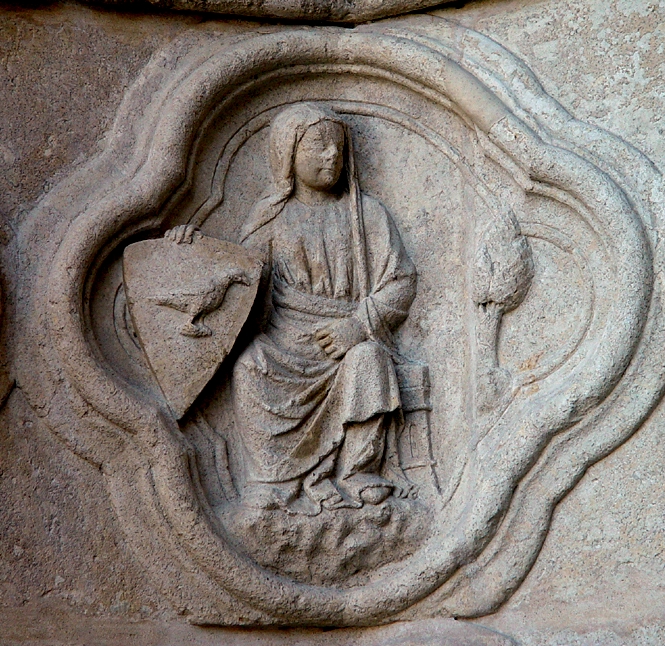
Personification of Humility
Cathédrale d'Amiens, 1220-1240
My dear friends,
In 2 Corinthians 12:2-10, the Apostle Paul speaks of an extraordinary experience he had, a vision of heaven and celestial realms. He shares how he was caught up in the third heaven, a realm of divine illumination and ineffable beauty. It was an experience beyond the grasp of ordinary human understanding, for it surpassed the limits of our usual perceptions.
Paul could have easily boasted about this extraordinary vision, using it to elevate his own status and authority. Yet, he does not indulge in such self-aggrandizement. Instead, he humbly speaks of a "thorn in the flesh" that tormented him, a messenger from darkness that reminded him of his human frailty.
By recognizing our own vulnerability and imperfections, and acknowledging the reality of suffering, we can embrace it as an opportunity for growth and transformation. It is through our acceptance of our limitations that we can embark on the path to liberation and spiritual awakening.
Paul pleaded with the Divine to remove this thorn from his life, just as we often pray for relief from our own challenges and trials. However, he received a profound response from the Divine, a message that holds great significance for all of us. The Divine spoke to Paul, saying, "My grace is sufficient for you, for my power is made perfect in weakness."
Here, we encounter a profound truth that transcends religious boundaries: the recognition that in our moments of weakness, we can tap into a power greater than ourselves. The Divine assures Paul that it is precisely through his vulnerability that the grace of the Divine can manifest most powerfully. It is through our own vulnerabilities that we can develop empathy, compassion, and a deep connection with the suffering of others.
Paul then makes a remarkable statement: "Therefore I will boast all the more gladly of my weaknesses so that the power of Christ may rest upon me." In this declaration, Paul invites us to reconsider the nature of weakness and strength. He challenges the conventional understanding that strength lies in self-reliance and independence. Instead, he suggests that true strength arises from an intimate relationship with the Divine, where our weaknesses become a source of spiritual empowerment.
True strength arises from a profound understanding of interconnectedness.The well-being of all sentient beings is intimately linked to our own well-being. In embracing our weaknesses, we cultivate empathy and compassion, transforming them into a source of strength to uplift others on their path to awakening.
Dear friends, as we contemplate these verses, let us reflect on our own thorns in the flesh. What are the challenges we face in our lives? How can we embrace them with humility and use them as catalysts for spiritual growth? Let us recognize that our weaknesses are not flaws or failures but opportunities for transformation and connection with the Divine.
May we, like Paul, surrender our egos and open ourselves to the grace that flows through our vulnerabilities. May we embrace the interconnectedness of all beings and cultivate compassion and empathy. In doing so, may we discover the true strength that lies within us and become beacons of love and light in this world.